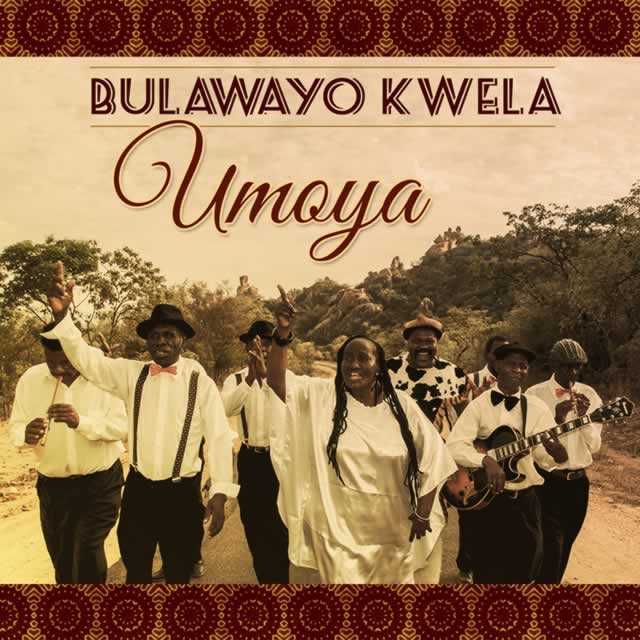Muntanga: The lion of Binga

 Cde Andrew Sikajaya “Bigman” Muntanga, the “Lion of Binga”, a pioneer in nationalist politics among the Tonga people, a revolutionary leader and first member of Parliament for Binga, died on July 10, 2011 at the age of 74.
Cde Andrew Sikajaya “Bigman” Muntanga, the “Lion of Binga”, a pioneer in nationalist politics among the Tonga people, a revolutionary leader and first member of Parliament for Binga, died on July 10, 2011 at the age of 74.
He was buried at the National Heroes Acre on July 20.
Born on October 20, 1937 in Binga District, Cde Muntanga did Sub A and Sub B at St Ignatius Catholic School in 1952 at the age of 12.
In 1960 he joined the Minor Seminary at St Mary’s for his Standard Four and Five.
In 1961, he left the Minor Seminary and went to Mazabuka in Northern Rhodesia (Zambia), where he completed his Standard Six.
Cde Muntanga pursued his secondary education up to O-Level from 1961 to 1963 at St Canisius College, Chikuni.
He became a devout Christian priest in Zambia.
It was during his stint for priesthood in Zambia that he first brushed with politics under the tutelage of the United Independence Party (UNIP) led by Dr Kenneth Kaunda.
This is the time when news filtered through to him that the Zimbabwe African Peoples’ Union (Zapu) was recruiting cadres to join the liberation struggle.
Cde Muntanga left his priesthood training and returned home to Zimbabwe (then Southern Rhodesia) where he met the late Cdes Joshua Nkomo and Joseph Msika in Bulawayo, marking the beginning of his tortuous but triumphant journey in Zimbabwean politics.
Cde Muntanga set off on a mission to meet Cde Joshua Nkomo, who was detained at Gonakudzingwa, to get his political guidance.
Cde Muntanga developed a revolutionary passion to raise political consciousness among the Tonga people.
He traversed the whole Binga District and adjacent areas mostly on foot organising the Tonga people to join the political mainstream as well as opening Zapu branches, working with the likes of Cde Francis Munkombwe (former MP for Binga from 1985-1990) and Cde Siyamenda James Munkuli.
Cde Muntanga was even banned from entering Binga District by the Smith regime as he was declared a persona non grata, with the documentation describing him as an undesirable, dangerous character and was imprisoned in Hwange and later detained at Wha Wha Prison.
After his release from Wha Wha in late 1972, Cde Muntanga decided to go to Zambia via Botswana to join the liberation struggle and was arrested and imprisoned at Khami Prison in the company of other Zapu activists who included the likes of Cde Abraham Nyoni.
Cde Muntanga escaped and flew to London where he worked with veteran nationalists, the late Cdes Francis Mwene Nehwati and Ariston Chambati mobilising material resources for the freedom fighters, for Zipra camps in Zambia.
In 1975, Cde Muntanga was redeployed to the Guerilla Works Camp in Lusaka as Deputy Commandant to the late veteran nationalist and national hero, Cde Stephen Nkomo.
They were responsible for Zipra’s manpower development and logistics where the overall head of the Guerilla Works Camp was the late Vice President, Cde John Landa Nkomo.
The party later elevated him to become a member of the Zipra Revolutionary Council and Cde Muntanga was subsequently chosen to be one of the delegates to the Lancaster House Conference in London.
Prior to attending the Lancaster House Conference, he had also been chosen as one of the delegates to the failed Geneva Conference of 1976.
At the conclusion of the Lancaster Conference, Cde Muntanga was part of the Zipra Logistics Advance Party that went into Zimbabwe first to organise for the returning freedom fighters.
He became instrumental in the identification of Zipra assembly points in Matabeleland North Province.
Prior to the 1980 General Elections that ushered in Independence, Cde Muntanga was elected member of the Central Committee for PF Zapu and held the position of Deputy National Organising Secretary.
In 1980, Cde Muntanga was elected the first post-Independence Member of Parliament for Binga Constituency, a position he held up to 1985.
During his tenure as MP, Cde Muntanga worked tirelessly to bring development to Binga and was at the centre of the construction of schools, clinics and the Binga District Hospital in his constituency.
He also played an important role during the negotiations leading to the Unity Accord of 1987.
After the Unity Accord, he was instrumental in mobilising people to be in the Zanu-PF structures in Matabeleland North Province.
Cde Muntanga was later elected the Provincial Secretary for the Commissariat for Matabeleland North Province, a position he held up to 2000.
The party recognised and rewarded him for his sterling work resulting in his elevation to be a member of the National Consultative Assembly.
As a man of the people, the community in Binga recalled him to stand as their Member of Parliament in 1995.
He won the election and was again MP for Binga Constituency from 1995 to 2000.
Thereafter, Cde Muntanga had to retire from active politics due to his failing health.
Cde Muntanga was a dedicated, hardworking, affable and pleasant cadre to work with.
He led and mobilised the Tonga people to work together and advocated for the development of Binga and the surrounding districts.
In recognition of his outstanding achievements during the liberation of Zimbabwe and after Independence, the Politburo unanimously saw it befitting that a man of such humility be conferred with the highest honour of national hero status.
At the time of his death, he was survived by his wife, Regina, seven children and seven grandchildren. — A Guide to Heroes Acre.







Comments